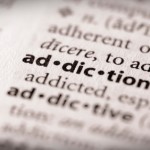Science, Disease and Stigma
by Steve Castleman
September 18, 2014

For me, the science of addiction was key to recovery. Before being convinced addiction was a brain disease, I had no explanation for my progressive deterioration other than that I was a weak screw-up. The stigma I attached to alcoholism compounded my denial, clouding any insight I might have had about my predicament and delaying treatment until I was given no other choice.
Once I understood the pathological brain changes that result from substance abuse, I had an alternative explanation that accomplished two important things. First, it shifted my attitude. Rather than believing I was trapped — a screw-up with such insufficient willpower, I’d never be able to change — I got a glimpse of a way out. Diseases require treatment. If addiction was truly a disease, it made sense to me (for the first time) that treatment was necessary. Second, the science helped alleviate the stigma, shame and guilt I felt over having lost control of myself.
I created AddictScience.com in the hope that wider education about the science of addiction might have the same effect on others as it’s had on me. And in the belief that stigma is challenged by scientific evidence that addicts aren’t bad people, they’re sick people whose illness warps their decision-making and motivates irrational choices.
But am I right?
Many, if not most of the addicts I’ve known in recovery haven’t been interested in the science at all. A few have even had the exact opposite of my experience: they felt stigmatized by being told they had a “disease.”
So, for this inaugural installment of the AddictScience Newsletter, I ask: Does understanding the science really matter to the recovery community and the general public? Or is it only of interest to a very small minority (like those who might find AddictScience useful)? Does the disease model fight or promote stigma? And If science isn’t the best way to challenge the stigma of addiction, what is?
Please chime in for what I hope will be a discussion in which all viewpoints are welcome and treated respectfully.
Thanks for contributing,
steve
The question I ask is how does one rationalize the science behind addiction when such person is addicted and there for not capable of rational thinking? I have come to a brick wall in every explanation I have given a loved one as to why they are not really here even though their body is here. How does one rationalize with an un-rational brain?
Your question gets at a central problem with brain diseases like addiction: it’s very difficult for a diseased brain to recognize its own malfunction.
Addicts’ brains overemphasize the short-term emotional need for drugs to stave off withdrawal and feel normal, and underemphasize consideration of longer-term consequences.
Rational arguments meet a brick wall because addicts feel that they need drugs just to survive. They’re tragically wrong about this in the long run, but that belief is very strong and addicts cling to it — they can’t imagine life without the drugs they rely on to make it through each day.
Three suggestions: First, it can matter who delivers the message. In my case, hearing from a doctor that I was diagnosed with alcoholism was very different than hearing it from family or friends, which sounded to me like an accusation. Addiction is a disease, so a doctor, particularly one who specializes in addiction, is always a good first step.
Second, expecting the irrational to act rationally is a prescription for frustration. That’s why the professionally-led interventions I’ve attended have all led not with facts and figures or expressions of anger or resentment (no matter how well-deserved), but with emotional appeals like: “We love you, we’re afraid you’re gong to die and we’ll miss you.” Emotional appeals sometimes work where rational ones don’t.
Finally, all I can offer is one guy’s opinion. I don’t know the particular circumstances, nor am I an expert in helping addicts break through denial. That’s why I suggest you try Al-Anon. There you’ll be able to share your circumstances with people who have been in similar situations and access an entire community’s experience. Feeling that you’re not alone, that you have social support from caring people who have been where you are and are willing to help you cope, can be very helpful.
Best of luck,
steve
Steve thank you for the reply! Every little bit of help I receive helps in this uphill journey and makes the load a bit lighter.
After I posted my comment I did search for meetings and I am very pleased to say I attende my first and very inspiring nar-anon meeting last night!
Maybe, just maybe there is a sliver of hope in dealing with my addicted husband and my addicted 15 year old son!
Thanks again 🙂 best of luck to you also!